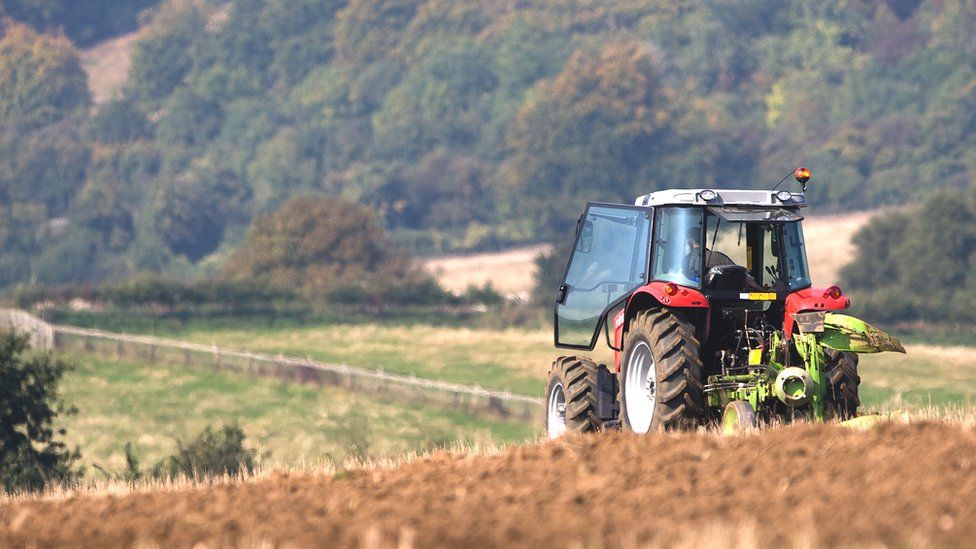Food strategy criticised by government's own adviser
- Published
- comments

Food will be grown in greenhouses covering acres of land under proposals to increase self-sufficiency to help guard against future economic shocks.
"Backing farmers" is the focus of the government's long-awaited food strategy for England.
The strategy announced today has been described by critics as "half-baked".
It follows a landmark review of the food system by restaurant owner, Henry Dimbleby, who said only about half of his recommendations had been taken on.
But the pledge to "back farmers" has been welcomed by the National Farmers' Union and the Soil Association.
Speaking from a Cornish farm, Prime Minister Boris Johnson said he was "supporting great British farming" and putting money into modernisation and innovation.
The food strategy puts a focus on home-grown food, including strengthening supply chains and boosting food production.
- £270 million will be invested in technology to increase productivity and profitability
- The government will consult on an ambition for 50% of public sector food spend to go on food produced locally or certified to higher standard
- A framework will be published next year on how to help farmers grow more food while also meeting legally-binding targets to halt climate change and nature loss.
Restaurateur Henry Dimbleby said the policy document was not detailed enough to be called a strategy.
The government's own adviser on food told the BBC: "They've now implemented more than 50% of what I recommended, but it hasn't been done with one vision across the whole system."
Health campaigners are critical of the omission of recommendations for a tax on unhealthy foods.
But Mr Dimbleby said his salt and sugar tax proposal would be responded to by the government at a later date, adding that Health Secretary Sajid Javid should "be bold and brave in a difficult political context and act to break that junk food cycle".
He also expressed hope people can "get away from this narrative of personal responsibility and education, which is important, but it isn't going to get us out of the hole we're in".
Sue Davies of consumer group, Which?, said the strategy lacked ambition and many of the recommendations had been "watered down, ignored or put off for further consultation".
And conservation charity, The Wildlife Trusts, said the government had broken its promise to restore nature at scale.
Conservation group, WWF, said making UK farming "good for climate and nature" was the only way to "fix a broken food system to ensure healthy, affordable, sustainable food is available for everyone, now and for generations to come".
"Putting nature and climate at the heart of our food system was a clear promise of this government at COP26 - now it must raise its game and prove it's got the backbone to deliver for people and planet," Katie White said.
- LIQUID DIET: Are meal replacement drinks good for you?
- 'YOU NEED KINDNESS, BUT TOUGHNESS TOO': A day in the life of a school attendance officer
- Published11 June 2022
- Published15 July 2021
- Published14 July 2021